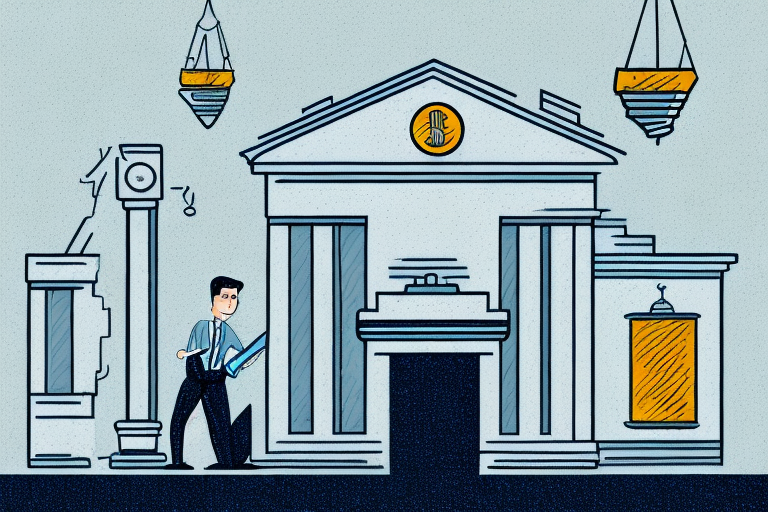Choosing the Right Commercial Lawyer for Your Business: What to Consider
In the competitive and ever-evolving world of business, having a reliable and experienced commercial lawyer by your side is crucial. A commercial lawyer not only provides legal assistance and guidance but also plays a significant role in protecting your business interests. However, finding the right commercial lawyer for your business can be a daunting task. With so many options available, it’s important to consider various factors before making a decision.
Understanding the Role of a Commercial Lawyer in Business
Before delving into the factors to consider when choosing best corporate lawyers, it’s essential to understand the role they play in your business. A commercial lawyer specializes in business law and provides legal advice and assistance on various aspects, including contracts, intellectual property, corporate governance, mergers and acquisitions, and other commercial transactions. They ensure that your business operations comply with the law and protect your rights and interests.
When it comes to contracts, a commercial lawyer is there to draft and review them, ensuring that all the necessary terms and conditions are included and that your business’s best interests are protected. They have a keen eye for detail and are well-versed in legal language, making sure that no loopholes or ambiguities exist that could potentially lead to disputes or legal complications.
Moreover, a commercial lawyer also plays a crucial role in negotiating on your behalf. They have the skills and expertise to advocate for your business’s interests and secure favorable terms in various business transactions. Whether it’s negotiating a partnership agreement, a merger, or an acquisition, having a commercial lawyer by your side can significantly increase the chances of achieving a successful outcome.

Key Responsibilities of a Commercial Lawyer
A commercial lawyer’s responsibilities extend far beyond legal advice. They draft and review contracts, negotiate on your behalf, handle disputes and litigation, and provide guidance on regulatory compliance. Additionally, they stay updated with changes in the legal landscape that may impact your business and proactively advise on risk mitigation strategies.
When it comes to disputes and litigation, a commercial lawyer is your advocate. They have a deep understanding of the legal system and can represent your business’s interests in court if necessary. From gathering evidence to building a strong case, they use their legal expertise to navigate the complexities of the legal process and fight for a favorable outcome.
Furthermore, a commercial lawyer is well-versed in regulatory compliance. They keep track of the ever-changing legal requirements and ensure that your business operates within the boundaries of the law. By staying up to date with the latest regulations, they can help you avoid potential legal pitfalls and ensure that your business remains in good standing.
How a Commercial Lawyer Can Benefit Your Business
Having a skilled commercial lawyer on your team brings numerous advantages to your business. They help you navigate complex legal processes, ensuring that your decisions are legally sound. Additionally, they provide peace of mind by minimizing the risk of costly legal disputes and penalties. A commercial lawyer also plays a vital role in identifying and protecting your intellectual property, trademarks, and patents, safeguarding your competitive advantage.
When it comes to intellectual property, a commercial lawyer can assist in conducting thorough searches to ensure that your business’s trademarks, copyrights, and patents are unique and not infringing on others’ rights. They can also guide you through the registration process, ensuring that your intellectual property is properly protected. In the event of any infringement, a commercial lawyer will take prompt action to enforce your rights and seek appropriate remedies.
Furthermore, a commercial lawyer can help you develop strategies to prevent intellectual property theft or unauthorized use. They can draft non-disclosure agreements, confidentiality agreements, and other legal documents to safeguard your valuable assets. By proactively protecting your intellectual property, a commercial lawyer helps maintain your business’s competitive edge in the market.
In conclusion, a commercial lawyer plays a crucial role in ensuring that your business operates within the boundaries of the law and protects its rights and interests. From providing legal advice and assistance to drafting contracts, negotiating on your behalf, and handling disputes, their expertise is invaluable. By having a skilled commercial lawyer on your team, you can navigate complex legal processes with confidence and focus on growing your business.
Factors to Consider When Choosing a Commercial Lawyer
Choosing the right commercial lawyer requires careful consideration of several crucial factors. Here are some key aspects to keep in mind:
Experience and Specialization
When it comes to legal matters, experience matters. Look for a commercial lawyer with ample experience in dealing with businesses similar to yours. They should have a deep understanding of the industry’s intricacies and the challenges you may face. Additionally, consider their specialization within commercial law, such as contract law, intellectual property, or corporate law.
An experienced commercial lawyer can provide valuable insights and guidance based on their past cases. They have likely encountered various legal issues that are specific to your industry, allowing them to anticipate potential problems and provide proactive solutions. Their expertise can help you navigate complex legal landscapes with confidence.
Furthermore, a specialized commercial lawyer can offer in-depth knowledge and understanding of specific legal areas. For instance, if you are dealing with intellectual property matters, a lawyer with expertise in this field can provide tailored advice to protect your company’s intangible assets.

Reputation and Reviews
Analyze the reputation and credibility of potential commercial lawyers. Check their track record, online reviews, and testimonials from previous clients. A lawyer with a positive reputation and satisfied clients is more likely to provide you with exceptional service.
Consider seeking recommendations from trusted sources, such as other business owners or professionals in your network. Their firsthand experiences can give you valuable insights into a lawyer’s competence, reliability, and ethical standards.
Additionally, research the lawyer’s professional affiliations and memberships in legal organizations. Active participation in such associations demonstrates a commitment to staying updated with the latest legal developments and a dedication to professional growth.
Communication and Availability
Effective communication is crucial in a lawyer-client relationship. Look for a lawyer who is responsive, attentive, and communicates in a clear and concise manner. Accessibility is another vital aspect to consider. Your lawyer should be readily available to address your concerns and provide updates on your legal matters.
During the initial consultation, pay attention to how the lawyer listens to your needs and responds to your questions. A good commercial lawyer will take the time to understand your business goals and objectives, ensuring that their legal strategies align with your overall vision.
Furthermore, inquire about the lawyer’s preferred mode of communication. Some lawyers may prefer face-to-face meetings, while others may be more comfortable with phone calls or emails. Choose a lawyer whose communication style matches your preferences and needs.
Legal Fees and Billing Structure
Discuss the lawyer’s fee structure upfront to ensure it aligns with your budget and expectations. Some lawyers charge hourly rates, while others may offer fixed fees or contingency-based payment. Consider the value provided by the lawyer and carefully evaluate the fees and payment terms.
Transparency is key when it comes to legal fees. Make sure you understand how and when you will be billed, including any additional costs such as court fees or administrative expenses. It is also essential to discuss the estimated timeline for your legal matters and how it may impact the overall cost.
While cost is an important factor, it should not be the sole determining factor in choosing a commercial lawyer. Instead, focus on finding a lawyer who can provide high-quality legal services and deliver the desired outcomes for your business.
Steps to Finding the Right Commercial Lawyer
Now that you understand the importance of selecting the right commercial lawyer and the factors to consider, here’s a step-by-step guide to help you in your search:
Conducting a Comprehensive Search
Start by conducting thorough research to identify potential commercial lawyers. Seek recommendations from trusted sources, such as business associates, industry organizations, or legal directories. Utilize online platforms and review websites to gather more information about the shortlisted lawyers.
During your research, it is essential to consider the specific expertise and experience required for your business. Commercial law covers a wide range of legal matters, including contract negotiations, intellectual property protection, employment law, and mergers and acquisitions. Look for lawyers who have a proven track record in handling cases similar to yours.
Additionally, take into account the size and reputation of the law firms you are considering. Larger firms may have more resources and a broader range of expertise, while smaller firms may provide a more personalized and cost-effective service. Consider your budget and the complexity of your legal needs when making this decision.

Interviewing Potential Candidates
Once you have a list of potential lawyers, schedule interviews or consultations with each of them. Prepare a list of questions to assess their expertise, experience, and approach to handling legal matters. During the interviews, pay attention to their communication skills, responsiveness, and their ability to understand your business needs.
It is crucial to establish a good rapport with your lawyer, as you will be working closely with them on important legal matters. Ask about their availability and how they prefer to communicate with their clients. Some lawyers may prefer face-to-face meetings, while others may be comfortable with phone calls or email correspondence.
Furthermore, inquire about their team and support staff. A lawyer with a capable and efficient team can provide better support and handle multiple aspects of your case simultaneously. This can be particularly important for complex commercial matters that require extensive research and documentation.
Making the Final Decision
After conducting the interviews, carefully evaluate each lawyer based on their qualifications, reputation, compatibility, and fee structure. Consider their understanding of your industry and their ability to provide tailored solutions for your specific business requirements.
Reputation is an essential factor to consider when selecting a commercial lawyer. Look for reviews and testimonials from previous clients, as well as any disciplinary records or complaints filed against them. A lawyer with a solid reputation and positive feedback from clients is more likely to provide quality service.
When it comes to fees, discuss the billing structure with the lawyer. Some lawyers charge an hourly rate, while others may offer fixed fees for specific services. Make sure you have a clear understanding of how and when you will be billed, as well as any additional costs that may arise during the course of your legal representation.
Trust your instincts and select the lawyer who aligns best with your business goals and values. Remember that a commercial lawyer is not just a legal advisor but also a strategic partner who can help you navigate the complex legal landscape and protect your business interests.
Maintaining a Healthy Relationship with Your Commercial Lawyer
Once you’ve chosen the right commercial lawyer for your business, it’s essential to establish and maintain an effective working relationship. Here are some tips to ensure a healthy and productive partnership:
Setting Clear Expectations
Communicate your expectations and goals clearly with your lawyer. Establish a shared understanding of the legal matters your business is involved in and the outcomes you seek. This clarity will enable your lawyer to provide targeted advice and solutions.
Regular Communication and Updates
Maintain open lines of communication with your lawyer. Share any new developments, concerns, or changes in your business operations promptly. Regular updates will help your lawyer stay informed and proactively address any legal issues that may arise.
Understanding Your Role in the Legal Process
While your lawyer will handle most legal matters, it’s important to understand your role and responsibilities. Be proactive in providing necessary information and documentation, and collaborate closely with your lawyer to achieve the desired outcomes.
By carefully considering the factors mentioned above and following the steps to find the right commercial lawyer, you can confidently choose a legal partner who will protect and support your business’s growth and success.
See also
Family Law: Understanding Its Role and Importance in Society


